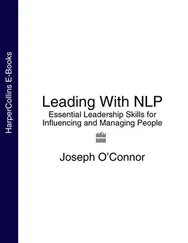John Gray - Children Are from Heaven - Positive Parenting Skills for Raising Cooperative, Confident, and Compassionate Children
Здесь есть возможность читать онлайн «John Gray - Children Are from Heaven - Positive Parenting Skills for Raising Cooperative, Confident, and Compassionate Children» весь текст электронной книги совершенно бесплатно (целиком полную версию без сокращений). В некоторых случаях можно слушать аудио, скачать через торрент в формате fb2 и присутствует краткое содержание. Год выпуска: 1999, ISBN: 1999, Издательство: HarperCollins e-books, Жанр: psy_childs, sci_pedagogy, Психология, на английском языке. Описание произведения, (предисловие) а так же отзывы посетителей доступны на портале библиотеки ЛибКат.
- Название:Children Are from Heaven: Positive Parenting Skills for Raising Cooperative, Confident, and Compassionate Children
- Автор:
- Издательство:HarperCollins e-books
- Жанр:
- Год:1999
- ISBN:978-0-06-133886-1
- Рейтинг книги:4 / 5. Голосов: 1
-
Избранное:Добавить в избранное
- Отзывы:
-
Ваша оценка:
- 80
- 1
- 2
- 3
- 4
- 5
Children Are from Heaven: Positive Parenting Skills for Raising Cooperative, Confident, and Compassionate Children: краткое содержание, описание и аннотация
Предлагаем к чтению аннотацию, описание, краткое содержание или предисловие (зависит от того, что написал сам автор книги «Children Are from Heaven: Positive Parenting Skills for Raising Cooperative, Confident, and Compassionate Children»). Если вы не нашли необходимую информацию о книге — напишите в комментариях, мы постараемся отыскать её.
Children Are from Heaven: Positive Parenting Skills for Raising Cooperative, Confident, and Compassionate Children — читать онлайн бесплатно полную книгу (весь текст) целиком
Ниже представлен текст книги, разбитый по страницам. Система сохранения места последней прочитанной страницы, позволяет с удобством читать онлайн бесплатно книгу «Children Are from Heaven: Positive Parenting Skills for Raising Cooperative, Confident, and Compassionate Children», без необходимости каждый раз заново искать на чём Вы остановились. Поставьте закладку, и сможете в любой момент перейти на страницу, на которой закончили чтение.
Интервал:
Закладка:
SAMPLE REWARDS
Here is a list of sample rewards. Take a few minutes to consider how you might communicate these rewards in a way that would work best for your children. Take into consideration their temperament. In addition, think of when you might need to use rewards and what rewards you think would work best with your children.
If you cooperate and pick up your toys now, then I will have time to play cards.
If you help me pick up your toys now, then I will have time to play a game with you.
If we clean up now, then we can do an art project.
If you pick out your school clothes tonight, then we’ll have time to have waffles for breakfast.
If you get ready to go now, then we can come back again real soon.
If you get dressed now, then we can get treats right after school.
If you stop talking now, then we can walk the dog together.
If you get in the car now, then later I will play catch with you.
If you cooperate with me now, then I will do something special for you later.
If you do your homework now, then later we can have a little tea party.
If you eat your veggies, then we will have a dessert tonight.
If you come to dinner now, then we can sing songs after dinner.
If you come now, then you can play your game later.
When your children resist, instead of taking something away, give them a little more. Give them more support, so that they can once again feel their inner willingness to cooperate. Instead of using pain as a deterrent, use the possibility of more to encourage them.
ALWAYS HAVE SOMETHING UP YOUR SLEEVE
What makes giving rewards work is finding things that really motivate your children. Once you know what motivates your children, then always keep it up your sleeve. For one child, the only motivator you will ever need is “If you cooperate with me now, then I will have time to read you more stories.” For another child, it might be, “If you cooperate with me, then we can make cookies in the kitchen together.” Other children may need a variety of rewards.
The secret of giving rewards is to pay attention to the things your children want most and use that to reward them.
If they really like stories, then hold back a little on reading stories. Certainly, don’t stop altogether, but make sure that you don’t overdo giving stories. Then reading stories becomes a more potent reward. Let’s look at another example. When a child says, “Can we go to the park this week?”
You say, “That’s a great idea. If we have time we certainly will.” At another time when they are resisting you can say, “If you cooperate now, then I will have more time and will take you to the park.” Although you were already planning or hoping to take them to the park, you can now use that as a reward.
In a sense the very things you would take away to punish, can instead be given as rewards. If a parent would threaten not to take a child for a walk, then use going for a walk as a way to motivate the child. Instead of threatening with a statement like, “If you don’t put these games away, then you can’t play with them,” say, “If you put these games away, then I will play a game with you later.” The greatest and easiest reward to give is more of you.
The very things you would take away to
punish can instead be given as rewards.
Rewards basically need to be somewhat logical, related, or reasonable. A logical reward is, “If you do this for me, then I will have time to do something for you.” It is logical in the sense that if you do something for me, I will do something more for you. A related reward is, “It’s time to go home for dinner. I understand you want to play and it’s time to leave. If you come now, we’ll come back again soon.” The reward is related to the activity you want them to stop. A reasonable reward gives more according to the degree of resistance the child has. If the challenge is great for them, then offer them more.
Prepared parents always have a few rewards up their sleeve to pull out when their child is resisting. These are some common examples of rewards. Consider what rewards might be most appropriate to use.
A LIST OF REWARDS
We will have more time to do something special later.
You may ride your bike later.
We can pick flowers for the dinner table.
We can walk the dog together.
We can share a hot chocolate.
We can have a tea party.
We can play catch.
We can shoot some hoops.
We can bake cookies.
We can read three stories before bed.
We can go get a treat.
We can have dessert.
We can go swimming.
We can sing songs.
You can have a friend over.
We can go for a drive.
We can go shopping.
We can climb some trees.
We can go for a swing.
We can go play in the park.
We can do an art project.
We can draw.
We can paint.
We can go for a walk.
We can play cards.
We can cuddle.
We can watch a special video or show.
Giving a time warning can be a very good motivator as well. Particularly receptive children need more time to make transitions. A wise parent attempts to think ahead and prepare this child for changes. Instead of saying, “It’s time to put on your jacket,” say, “In five minutes we are going to leave for school. At that time, I want you to put on your jacket. If you cooperate and put on you jacket, then we will have a fun ride to school.”
A wise parent attempts to think ahead and
prepare children for changes.
When lying with a child at night, if the child doesn’t want you to leave, then you can say, “Okay in five minutes, I am going leave. If you cooperate and lie quietly, then I will stay the whole five minutes. If you keep talking, then I will have to leave now.” Although having to leave now seems like a threat, it is okay because you have clearly given them a positive reward of your staying a whole five minutes longer if they lie quietly.
Before telling your kids to clean up their mess and come to dinner, let them know that in five minutes they will need to start cleaning up their mess to then come to dinner. Give them time to anticipate stopping, cleaning up their mess, and then coming to dinner. You could say, “You kids can play for five more minutes and then it will be time to clean up and come to dinner.” In five minutes when you ask again they will be more cooperative.
The real magic of rewards is that, at times when nothing seems to work promising a reward will work. Without this clear insight and skill, positive parenting cannot succeed.
Without the alternative of making a deal with your children through promising a reward, the only recourse is to threaten them with punishment.
RECURRING PATTERNS
When a child resists cooperating repeatedly, then offering the reward in advance is a useful approach. Once on a long plane ride, I had a difficult time getting my daughter Lauren to cooperate. From that time on, we solved the problem by preparing her for the trip. She loved a particular treat, so we promised her that treat if she cooperated the whole trip. By cooperating on the way to the plane and up to take off, she got a quarter of her favorite candy bar. Halfway through, she got the next quarter. Upon landing, she got the third quarter, and on arrival at our destination, she got the last quarter.
This plan worked beautifully each time. Before the trip we would show her the whole candy bar. Her eyes would light up as we explained how much she would get at every stage of the trip. Although she was busy playing with things, never once did she forget to get her section of the bar. It was always in the back of her mind, keeping her focused on being cooperative. Besides giving her a reward, we also had the wisdom of providing her with activities to do during the trip. It is very unrealistic to expect a child just to sit and be happy doing nothing for a five-hour flight.
Читать дальшеИнтервал:
Закладка:
Похожие книги на «Children Are from Heaven: Positive Parenting Skills for Raising Cooperative, Confident, and Compassionate Children»
Представляем Вашему вниманию похожие книги на «Children Are from Heaven: Positive Parenting Skills for Raising Cooperative, Confident, and Compassionate Children» списком для выбора. Мы отобрали схожую по названию и смыслу литературу в надежде предоставить читателям больше вариантов отыскать новые, интересные, ещё непрочитанные произведения.
Обсуждение, отзывы о книге «Children Are from Heaven: Positive Parenting Skills for Raising Cooperative, Confident, and Compassionate Children» и просто собственные мнения читателей. Оставьте ваши комментарии, напишите, что Вы думаете о произведении, его смысле или главных героях. Укажите что конкретно понравилось, а что нет, и почему Вы так считаете.












